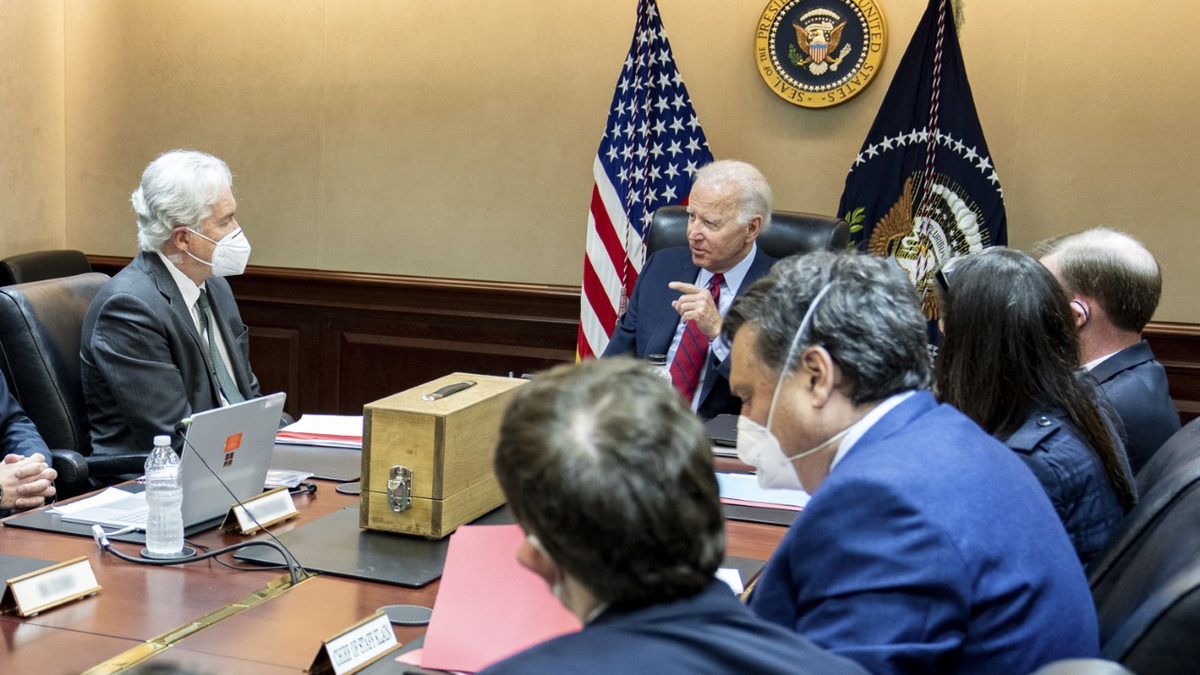Fox News correspondents on significance of Ayman al-Zawahri's death
Panel of Fox News reporters share what happened in Afganistan following the US drone strike against Al Qaeda leader al-Zawahri
America’s killing of Ayman Zawahiri, the leader of Al Qaeda and the number two to Osama bin Laden during the 9/11 attacks, is yet another important blow to a pioneer of Islamist terrorism, a victory for U.S. counterterrorism efforts, and a political win for President Joe Biden.
Whatever their politics, most Americans will welcome the death of the Egyptian-born physician who was a key architect of the 2001 attack that killed 2,977 people on American soil and helped transform militant Islamism from a movement seeking to overthrow repressive Middle Eastern regimes into one waging a global war on the U.S. and the West. "Justice has been delivered," President Biden said on a White House balcony, announcing the successful strike. "This terrorist leader is no more."
It is also evidence of America’s determination to continue targeting terrorist leaders. Just as Israel spent decades tracking down and killing the Palestinians who slaughtered Israeli athletes at the 1972 Olympics in Munich, the U.S. has systematically hunted and killed leading perpetrators of Islamist terror against Americans. President Obama announced the killing of Osama bin Laden in 2011, and President Trump the killing of Abu Bakr al-Baghdadi, the founder and leader of the Islamic State in Syria in 2019. President Biden chose to announce Zawahiri’s death in a seven-minute statement on Monday night from a White House balcony. "No matter how long it takes, no matter where you hide, if you are a threat to our people, the United States will find you and take you out," Biden declared.
US TAKES OUT AL QAEDA LEADER AYMAN AL-ZAWAHRI IN ‘SUCCESSFUL’ AFGHANISTAN COUNTERTERRORISM OPERATION
But Zawahiri’s death after a 21 year man-hunt will not end the threat of Islamist terrorism or alter the course of Islamist militancy. While his killing may prompt chaos within the group, it will not stop Al Qaeda or like-minded Islamist fanatics from forming seed groups throughout Africa and Southeast Asia. Al Qaeda, moreover, has long been on the decline, eclipsed by the rise of the more brutal, equally murderous Islamic State groups. Zawahiri’s killing in the dramatic drone strike will not end the debate over the wisdom of Biden’s decision to leave Afghanistan to the tender mercies of the Taliban, especially given its long-standing alliance with Al Qaeda in violation of its 2020 pledge in Doha, Qatar not to harbor or support terrorists.
"Yes, we can hit a leader," said Richard Clarke, the counterterrorism coordinator for the White House National Security Council on 9/11. "But what about the couple of thousand Al Qaeda rank-and-file in Afghanistan?"

President Joe Biden is shown here on July 1 during a meeting "to discuss the counterterrorism operation to take out Ayman al-Zawahri," the White House says. (White House)
Terrorist leaders can be replaced, critics of the administration’s counter-terrorism policies note. While it is unclear who will lead Al Qaeda, Nathan Sales, a senior fellow with the Scowcroft Middle East Security Initiative and Middle East Programs and a former US ambassador-at-large and coordinator, mentioned Saif al-Adel—long a guest of the Iranian regime.
"Killing the No. 1 guy in Al Qaeda is definitely a big deal," said David Schenker, a former United States Assistant Secretary of State for Near Eastern Affairs in the Trump administration. It also shows that despite Biden’s shambolic departure from Afghanistan, the U.S. military has retained some intelligence resources there and the ability to conduct "over the horizon" strikes against terrorist targets, he said. "At the same time," according to Schenker, "Zawahiri’s presence there – since April, shows that the Taliban are still willing to provide sanctuary to terrorists."
Even Secretary of State Anthony Blinken acknowledged the challenge. In a statement praising the dramatic drone attack which killed Zawahiri but no one else in the safe house in which he and his family were living, Blinken condemned the Taliban: "By hosting and sheltering the leader of al Qa’ida in Kabul," he said in a statement, "the Taliban grossly violated the Doha Agreement and repeated assurances to the world that they would not allow Afghan territory to be used by terrorists to threaten the security of other countries. They also betrayed the Afghan people and their own stated desire for recognition from and normalization with the international community."
CLICK HERE TO GET THE OPINION NEWSLETTER
What Biden intends to do about that sponsorship, however, is less clear. In his statement, Blinken said given the Taliban’s "unwillingness or inability to abide by their commitments, we will continue to support the Afghan people with robust humanitarian assistance and to advocate for the protection of their human rights, especially of women and girls."
CLICK HERE TO GET THE FOX NEWS APP
Such a threat is likely to less impact on the Haqqani network – a key component of the Taliban that is believed to have hosted Zawahiri and his family – than Hellfire missiles fired from a drone.












































